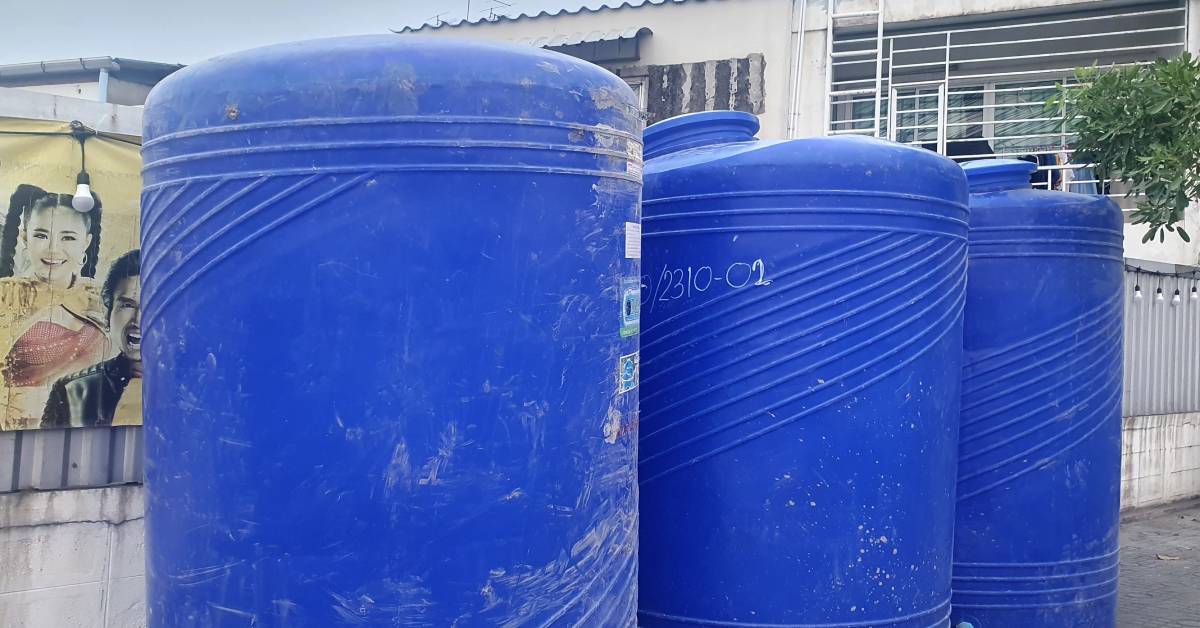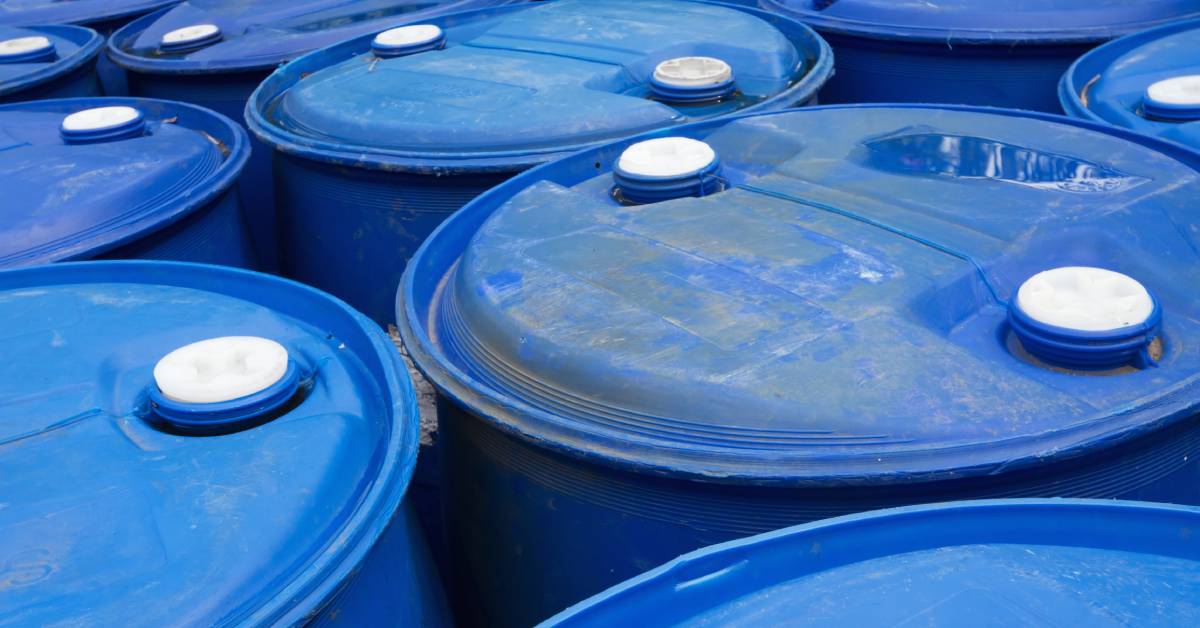Storing chemicals safely is a top priority for many industries, from pharmaceuticals to manufacturing. One crucial aspect of this is selecting the right storage containers, and polyethylene drums often come out on top. But why are polyethylene drums preferred for chemical storage? This comprehensive guide explores various reasons, providing practical insights and examples to illustrate the benefits of these drums.
The Strength of Polyethylene Drums
One reason why polyethylene drums are preferred for chemical storage is because they boast impressive strength and durability, which makes them ideal for storing hazardous materials. Their robust construction ensures they can withstand the rigors of transportation and handling. This durability translates to fewer accidents and spills, which is vital when dealing with dangerous substances.
Additionally, the high-density polyethylene (HDPE) used in these drums is resistant to impact and punctures. This is a necessary feature when considering the safety of the chosen storage solutions. Businesses can confidently store chemicals knowing that polyethylene drums offer reliable protection against leaks and contamination.
Chemical Resistance and Compatibility
A wide range of industries prefer polyethylene drums due to their chemical resistance. They are compatible with a vast array of substances, ensuring that the scientific chemicals within remain stable and uncontaminated. This compatibility is essential for maintaining the integrity of stored chemicals.
Polyethylene drums do not react with most acids, bases, or solvents, which means they can safely store a variety of chemical compounds. This non-reactive nature reduces the risk of dangerous chemical reactions that could compromise safety.
Furthermore, the inner surface of polyethylene drums is smooth, preventing the buildup of residues that could affect chemical purity. This feature also makes cleaning and reusing the drums more manageable, which promotes sustainability.
Environmental Benefits
Polyethylene drums contribute to environmental protection in several ways. Firstly, they are recyclable, reducing the amount of waste sent to landfills. Recycling polyethylene drums also conserves resources by turning used materials into new products.
Secondly, the manufacturing process of polyethylene drums produces fewer emissions compared to the processes for making metal drums. This lower carbon footprint makes polyethylene drums an environmentally friendly choice for businesses looking to reduce their impact.
Lastly, polyethylene drums are lightweight, which reduces transportation costs and fuel consumption. This benefit saves businesses money and decreases the overall environmental impact of shipping chemicals.
Cost-Effectiveness
When it comes to cost, polyethylene drums offer a budget-friendly solution. They are generally less expensive to produce than metal drums, resulting in lower upfront costs. This affordability makes them an attractive option for businesses of all sizes.
In addition to lower production costs, polyethylene drums have a longer lifespan due to their durability and resistance to damage. This longevity means that businesses can use these drums for extended periods without needing frequent replacements, further reducing expenses.
And as mentioned, the lightweight nature of polyethylene drums leads to lower shipping costs. This cost-saving advantage is particularly beneficial for companies that need to transport large quantities of chemicals regularly.
Ease of Handling and Use

Manufacturers design polyethylene drums for ease of use, making them a popular choice for chemical storage. Their lightweight construction allows for easy handling and movement, reducing the risk of workplace injuries while improving overall efficiency.
The ergonomic design of polyethylene drums also includes features such as molded handles and secure closures. These elements enhance the user experience by making the drums easier to carry, open, and seal. This convenience is particularly valuable in fast-paced work environments where time is of the essence.
Additionally, polyethylene drums are available in various sizes, allowing businesses to choose the best fit for their needs. This flexibility ensures that companies can store and transport chemicals efficiently, regardless of the quantity required.
Safety Features
Safety is paramount when storing chemicals, and polyethylene drums excel in this area. Their robust construction and chemical resistance contribute to a safer storage environment since these drums are less likely to leak or rupture, minimizing the risk of hazardous spills.
Polyethylene drums also feature secure closures that prevent accidental openings. This added layer of protection ensures that stored chemicals remain safely contained, even during transit. For industries dealing with volatile substances, this security is invaluable.
Furthermore, manufacturers must design polyethylene drums to meet stringent safety standards and regulations. This compliance gives businesses peace of mind knowing that their storage solutions adhere to industry best practices.
Versatility Across Industries
Polyethylene drums are suitable for a wide range of industries, making them a versatile storage solution. In the food and beverage sector, for example, businesses use drums to store ingredients and additives safely.
In the pharmaceutical industry, polyethylene drums provide a secure storage option for raw materials and finished products. The drums’ compatibility with various chemicals ensures that pharmaceutical compounds remain stable and effective.
The agricultural sector also benefits from using polyethylene drums to store fertilizers, pesticides, and other chemicals. Their durability and resistance to environmental factors make them an ideal choice for outdoor storage.
Customization Options
Polyethylene drums offer various customization options to meet specific storage needs. Businesses can choose from different sizes, colors, and closure types to suit their requirements. This flexibility allows companies to create tailored storage solutions that enhance efficiency.
For instance, color-coded polyethylene drums can help businesses organize and identify different chemicals quickly. This visual aid reduces the risk of mix-ups and improves overall safety. Custom labeling options are also available, allowing companies to include important information such as contents, handling instructions, and safety warnings. These labels ensure that employees have the necessary information to handle chemicals safely.
Impact on Supply Chain Management

Polyethylene drums positively impact supply chain management by streamlining storage and transportation processes. Their lightweight construction reduces shipping costs, making it more cost-effective to move large quantities of chemicals.
These drums are also stackable, optimizing storage space in warehouses and distribution centers. This efficient use of space translates to lower storage costs and improved inventory management. Furthermore, the durability of polyethylene drums ensures the protection of chemicals as they move through the supply chain. This reliability reduces the risk of product damage and loss, enhancing overall supply chain efficiency.
Compliance With Regulations
As mentioned, polyethylene drums meet regulatory requirements for chemical storage, providing businesses with compliant storage solutions. Manufacturers design these drums to adhere to industry standards, ensuring that companies can store chemicals safely and legally.
Regulatory compliance is particularly important for industries dealing with hazardous substances. Polyethylene drums minimize the risk of spills and leaks, helping businesses avoid costly fines and legal issues.
Polyethylene drums are the preferred choice for chemical storage due to their strength, chemical resistance, and cost-effectiveness. With features that enhance safety and ease of use, polyethylene drums are a reliable storage solution.

